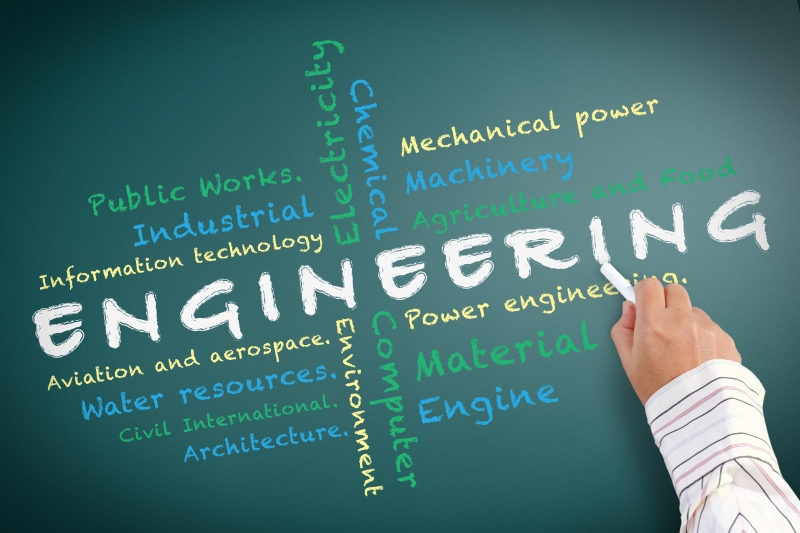There is an unbelievable number of courses that allow you to enter an engineering profession. Many of these degree programs conclude with a Bachelor of Engineering (B.E.). However, you can also pursue a technical career with a Bachelor of Science (B.Sc.). The degree alone does not necessarily reveal whether you can become an engineer with it. Which one should you choose, and how to evaluate different types of engineering degrees? We’ll give you tips on how to get a broad overview and shortlist your selections.
Engineering and technology
You can recognize courses based on acquiring specialized technical education and train you to become an engineer, for example, in medical engineering or biotechnology.
Informatics and IT
Everything that deals with computer science and information technology is also a good stepping stone into engineering. This field covers everything from applied computer science to media informatics and data science to bioinformatics – the range is wide.
Natural sciences
In engineering, you always deal with the natural sciences. So it is logical that you can also become an engineer with a degree in physics, biology, chemistry, or technical mathematics.
Degree programs with an extensive section on technology
The name of the course does not always reveal how much technology there is in the course. In the environmental sector in particular, i.e., in environmental sciences or environmental management, there is often more technology in it than one would expect. You can also become an engineer with such a degree. Before you start evaluating your engineering degree, find out the best online engineering programs that suit your career goals.
What is an engineer?
An engineer is someone who faces technical problems and tries to find solutions that are themselves technical. He intervenes in creating, designing, producing, implementing, and controlling products, systems, or services (possibly their financing and marketing). As an engineer, you have both technical and relational skills.
The engineer is more than a technician. First of all, he benefits from more advanced technical training than his peers. He also takes courses in management, communication, and languages. Finally, in his reflection on problem-solving, he often takes the human dimension into account.
What engineering courses are there?
Do you become an engineer as soon as you study something with technology? Yes, in principle. However, the proportion of technical subjects must predominate. Besides mechanical engineering, electrical engineering, computer science, and the likes, there are plenty of other subjects that you may never have heard of. Did you know that there are courses that only focus on surface technology, energetic building optimization, wood technology, civil engineering, or biofiber technology? The list of courses specializing in a particular subject is endless, some of the more commonly knowns ones being:
- Biochemistry & natural sciences
- Civil engineering & architecture
- Economy & technology
- Electronics
- Energy, environment & infrastructure
- Industry, production & materials
- Informatics & IT
- Mechanical engineering & construction
- Media & communication technology
- Medical technology
- Vehicles, mobility & traffic
All of these disciplines are very different and require individual interests and strengths. So how do you go about choosing a degree?
View what’s being offered
You can find all the technical courses in large university databases. In the first step, you can get a good overview of the variety of courses and universities.
Narrow down your choice
After an initial review, you will undoubtedly want to narrow down your options based on your interests. For example, you may be a fan of renewable energies or want to be part of general environmental innovations. In that case, a degree in energy technology, environmental technology, environmental science, or the like is the right thing for you. Those who enjoy tinkering with tiny electronic parts may be happy with studying microelectronics. You can choose to study medical technology, radiology technology, or optometry if the medical sector excites you.
Examine detailed information about individual courses
In the next step, you should take a closer look at your shortlisted choices. The detailed course descriptions will help you here. These include course content, prerequisites, career options, and of course, where you can study the chosen course.
Attend career fairs and study advisory services
At career fairs aimed at high school graduates, both universities and companies are often on-site to present their (dual) study programs. Most of the time, you can talk to students and ask questions about the program. And, of course, you can also go to student advisory services to seek assistance.
Talk to others
Some parents would like to “talk” to their children about their goals. We encourage this exchange with family members, acquaintances, and friends when choosing a course. This will help you reflect on your own choices for clarity and perspective. Sometimes this may also help you from making a potentially bad choice.
Do internships
Most course advisors cite internships as a groundbreaking experience. Where else can you find out what it feels like to be on a particular job? On top of that, operational experience is a plus on your résumé, sometimes even a prerequisite for studying. This experience is more like a litmus test of whether you’re making the right choice or not.
Conclusion
To conclude, the engineering profession covers very different areas of study! There are various routes to get your degree, especially since schools specialize in each area of engineering. It is a rapidly expanding profession for which demand continues to increase. Immerse yourself in professional platforms and find the job of your dreams!















